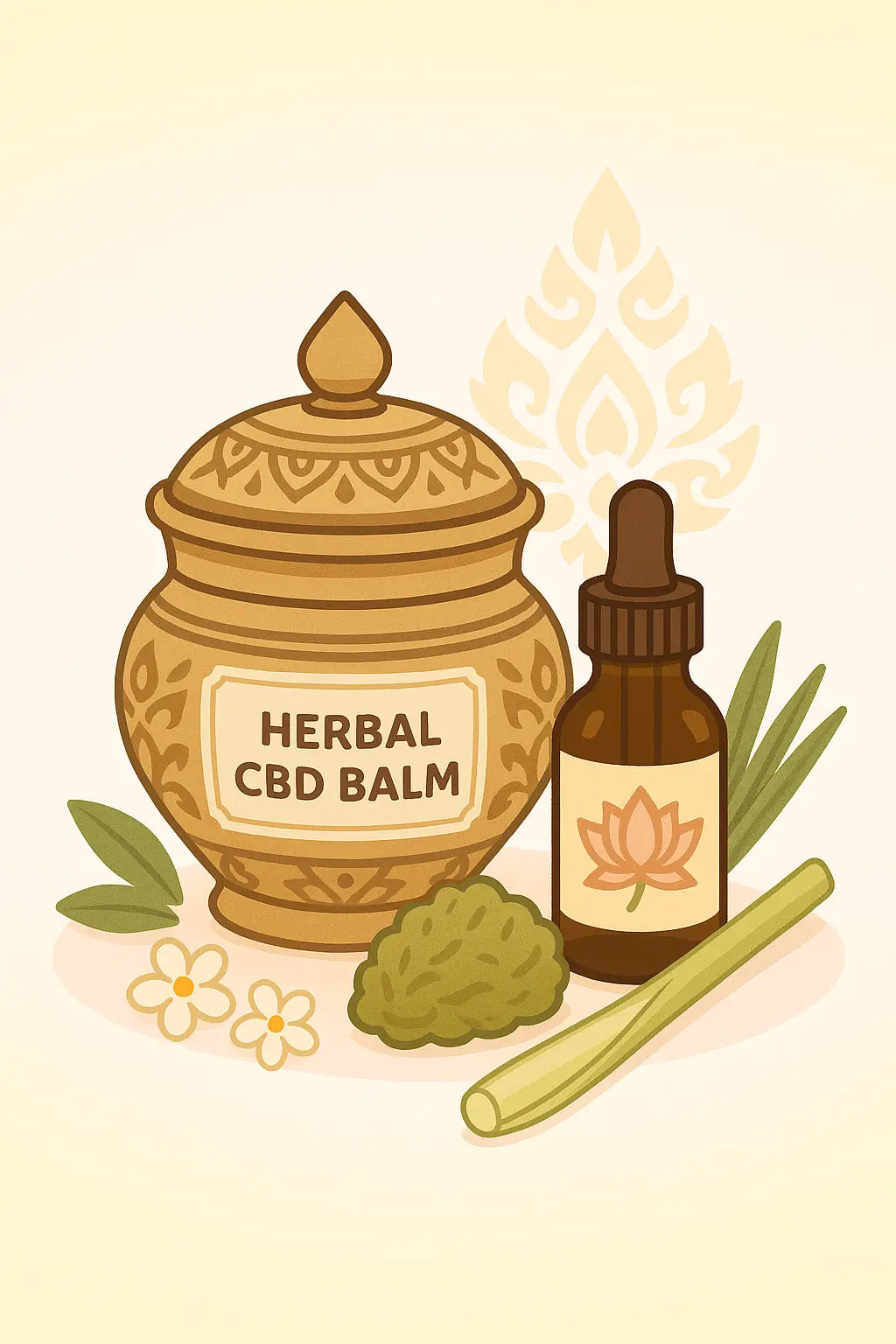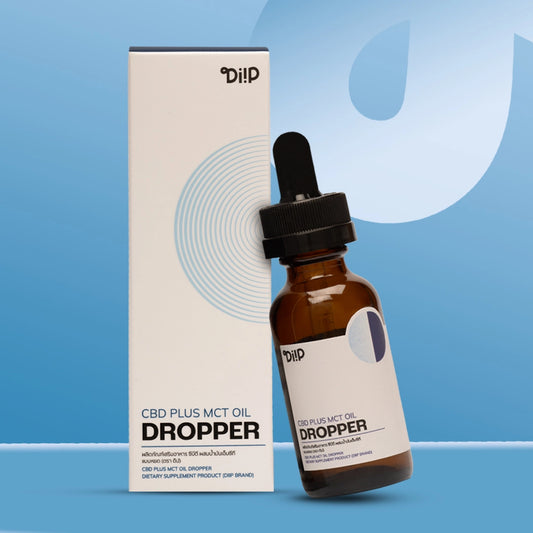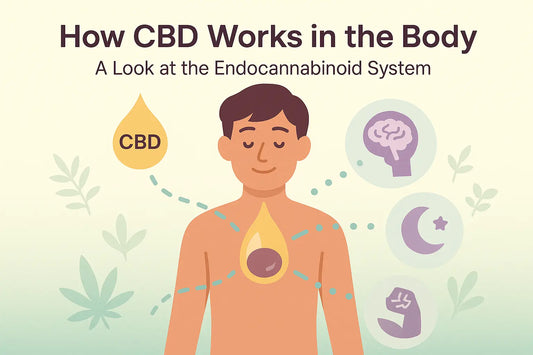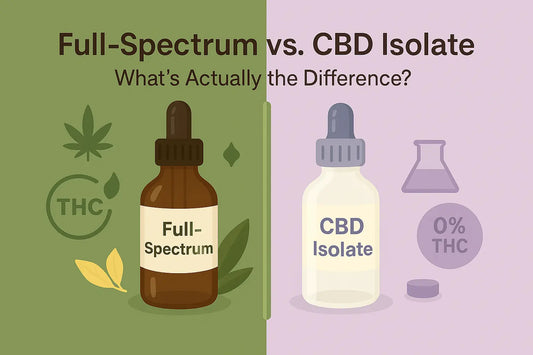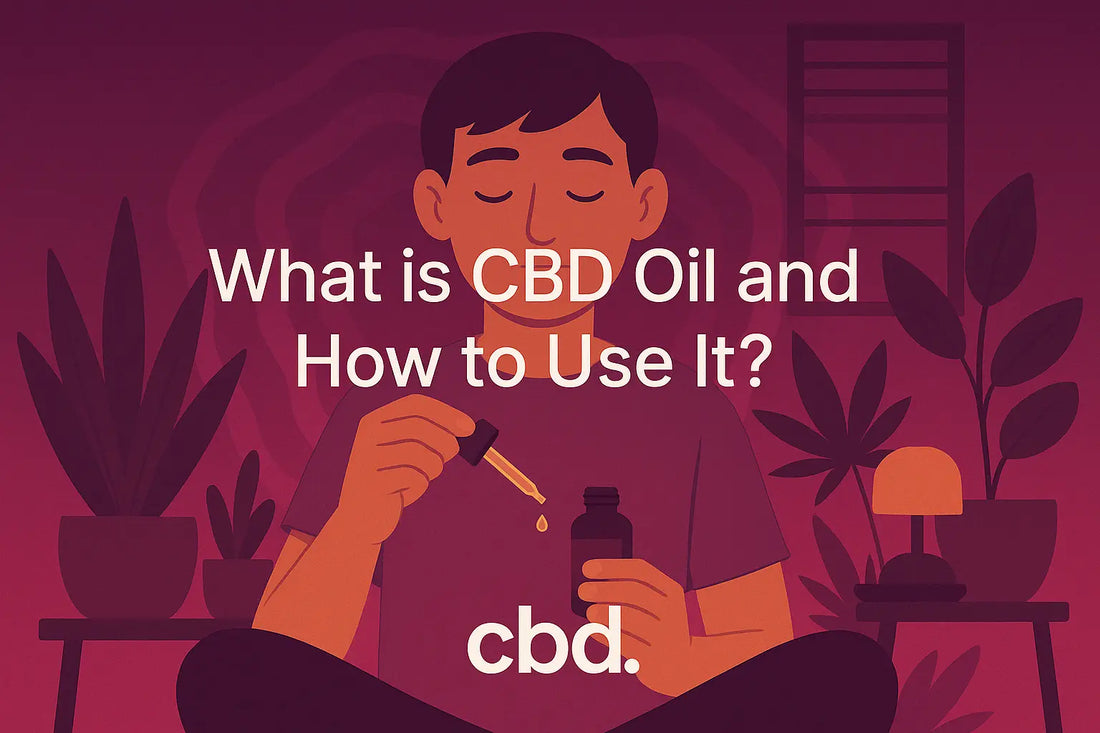
What is CBD Oil and How to Use It?
Cenk CetinShare
Introduction
CBD oil has captured the spotlight for its impressive potential to calm stress, boost sleep quality, and enhance overall vitality. Derived from the hemp plant, this natural compound interacts with the body’s endocannabinoid system, helping to promote balance without the psychoactive effects of THC.
As interest in CBD continues to grow, so does the question of how to use it effectively. In this guide, we'll uncover the basics of CBD oil, explore its possible benefits, and share the best methods for incorporating it into your lifestyle to achieve the best results.
Key Takeaways
- CBD is a non-psychoactive compound from cannabis that helps promote balance in the body without the effects of THC.
- CBD interacts with receptors in the body to help regulate mood, pain, sleep, and immune function.
- CBD oils can be used in different ways such as sublingual, edibles, topicals, etc.
- CBD oil with under 0.2% THC is legal for medical use with a prescription, but recreational use is banned.
What is CBD Oil?
CBD (cannabidiol) is a naturally occurring compound in the cannabis plant. Unlike THC, the component responsible for the “high,” CBD doesn’t cause any psychoactive effects. Instead, it works with the body’s endocannabinoid system to help manage mood, pain, and sleep.
CBD oil is derived from hemp, a type of cannabis with minimal THC levels. The extraction process usually uses CO2 or solvent-based methods to separate CBD from the plant, ensuring the oil is both pure and potent.
There are three main types of CBD oil:
- Full-Spectrum CBD: Contains all cannabinoids, terpenes, and trace amounts of THC for enhanced benefits through the “entourage effect.”
- Broad-Spectrum: Includes multiple cannabinoids and terpenes but is completely THC-free.
- CBD Isolate: The purest form, containing only CBD without any other plant compounds.
Understanding these differences can help you choose the right CBD oil based on your needs and preferences.
How CBD Oil Works in the Body
CBD oil interacts with the endocannabinoid system (ECS) in the body, which is a network of receptors and signaling molecules that plays a key role in regulating mood, pain, sleep, and immune system function.
The ECS has two main receptors:
- CB1 Receptors: Mainly found in the brain and central nervous system, it affects mood, memory, and the perception of pain.
- CB2 Receptors: Mostly located in the immune system, playing a role in inflammation and overall immune function.
Unlike THC, which binds directly to CB1 receptors, CBD influences these receptors indirectly, which promotes balance without causing a high. It is thought that this interaction may help promote health benefits like reducing stress, managing pain, enhancing sleep, and lowering inflammation.
Different Ways to Use CBD
There are several ways to take CBD oil, with each method offering unique absorption rates and effects. The method you choose should align with your individual lifestyle and wellness goals.
- Sublingual (Under the Tongue): Placing CBD oil under the tongue and holding it for 30-60 seconds allows for fast absorption into the bloodstream, leading to quicker effects.
- Edibles (CBD-Infused Food and Drinks): Gummies, chocolates, and beverages provide a tasty and discreet option, though effects take longer to kick in due to digestion but tend to last longer.
- Capsules and Softgels: Ideal for consistent dosing, capsules offer a no-fuss, pre-measured way to incorporate CBD into your routine.
- Topicals (Cream, Balms, and Lotions): When applied to the skin, CBD topicals provide targeted relief for specific areas, making them effective for muscle aches, joint pain, and skin care needs.
- Vaping and Smoking: Inhaling CBD delivers rapid effects by entering the bloodstream through the lungs, but it may come with potential health risks associated with vaping or smoking. (Vaping is not legal in Thailand)
How to Determine the Right CBD Oil Dosage
Finding the ideal CBD oil dosage requires a personalized approach, as it varies from person to person. Several factors influence how much CBD you may need to achieve the desired effects.
- Factors Influencing Dosage – Body weight, metabolism, and the condition being addressed all play a role in determining the right amount. A higher body weight or a more severe condition may require a stronger dose.
- Recommended Starting Doses – New users should begin with a small dose, usually between 20-40 mg per day, and observe how their body reacts before adjusting the dosage.
- Importance of Gradual Adjustments – Slowly increasing the dosage in small increments (e.g., 5 mg per week) helps minimize side effects and allows you to find the optimal dose for your needs.
Safety and Potential Side Effects
CBD is generally well-tolerated, but like any supplement, it’s important to be aware of possible side effects and safety considerations.
- Common Side Effects: Some users may experience mild effects such as dry mouth, dizziness, drowsiness, or changes in appetite. These usually depend on dosage and individual body chemistry.
- Drug Interactions and Precautions: CBD can interact with some medications, potentially affecting their efficacy. It’s important to exercise caution, particularly if you are on prescription medication.
- Consulting a Healthcare Professional: Before starting CBD, it’s always best to seek advice from a doctor, particularly if you have underlying health conditions or take other medications.
Legal Status of CBD Oil in Thailand
CBD oil’s legality in Thailand is subject to specific regulations and restrictions. Here’s an overview of the current status:
- Overview of Legality in Different Regions – In Thailand, CBD oil derived from hemp with less than 0.2% THC is legal. The country has relaxed its stance on medical cannabis, but recreational cannabis remains illegal.
- THC Content Restrictions – The Thai government has set strict limits on the THC content of CBD products. For legal use, CBD oil must contain no more than 0.2% THC, ensuring it doesn’t produce psychoactive effects.
- Regulations for Purchasing and Using CBD – While CBD products are available for medical use with a prescription, recreational use is prohibited. Citizens and residents can access CBD through licensed pharmacies or medical dispensaries. It is also available for specific medical conditions, but regulations continue to evolve.
Wrap Up
In summary, CBD oil has emerged as a popular wellness product, praised for its potential to support stress relief, improve sleep, and enhance overall health. By interacting with the body’s endocannabinoid system, CBD can promote balance without the psychoactive effects of THC. With various forms of CBD oil available—such as full-spectrum, broad-spectrum, and isolate—users can select the option best suited to their needs.
Using CBD responsibly is essential, beginning with a small dose and slowly increasing it to find the right amount for your desired results. Always monitor your body’s response, and if necessary, consult a healthcare professional to ensure CBD is safe and effective for you. While discovering the benefits of CBD oil, keep in mind that thorough research and consulting with professionals are essential for making well-informed choices.
